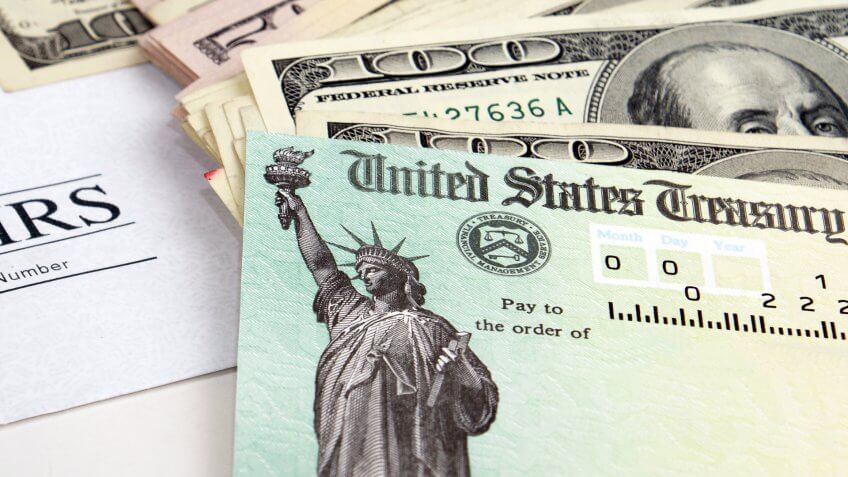Now that many taxpayers have received (and most likely spent) their Economic Impact Payments (EIPs), they’re wondering how that extra cash is going to affect tax returns in the winter and spring of 2021. Let’s go over the basics and some common questions about how your stimulus payment will affect your 2020 taxes.

How do the COVID-19 first-round stimulus payments actually work?
The first round of EIPs were cleared for release in early April, 2020. Hopefully you’ve received yours, or it’s on the way!
Whether you filed a tax return or received certain government benefits, the Internal Revenue Service used prior-year information, 2019 or 2018, to determine who was eligible for these payments. Think of this as receiving an advance rebate on a credit you’ll claim when you file your 2020 taxes next year—$1,200 per taxpayer and additional $500 per child 16 and younger.
The “advanced rebate based on prior year info” idea begs follow-up questions: What if your 2020 tax situation is different from 2019? What if you claim fewer dependents? What if your income is higher? Are you going to have to pay the stimulus back?
No, you won’t. The way the law is written, the credit can’t be reduced below zero, so you won’t be required to pay anything back if you received more than you were entitled to.
Will I owe taxes on my stimulus payment?
Since the EIPs are treated as advances of a 2020 tax credit, that money is not considered taxable income. You won’t have to pay income tax on the stimulus money.
That doesn’t apply to any unemployment benefits you may receive during the pandemic, however—those are still considered taxable income, so be sure to check that the amount of taxes withheld from your unemployment checks covers your tax obligation.
Will my stimulus payment put me in the next tax bracket?
As mentioned before, the EIP is not classified as income, so the payment will not bump you into the next tax bracket. Even if you’re right on the line of your current bracket, the stimulus payment won’t put you over the edge.
Will I get any of my tax credit when I file next year if I received an Economic Impact Payment (EIP)?
The payment is an advance for a 2020 tax year credit. If you receive the full amount you are entitled to as an EIP this year, then you’ve essentially claimed the full credit amount early.
However, if you received less than you are entitled to, you’ll be able to claim the additional amount of the credit on your 2020 tax return. A good example would be if you have a baby in 2020–that’s a new dependent to claim on your 2020 taxes which, among other tax benefits, gives you an additional $500 stimulus “credit.”
Remember, as we mentioned before, you won’t have to pay back any amount of that stimulus check that was more than what you should have received.
State refunds will likely proceed as normal, since states did not provide stimulus payments.

